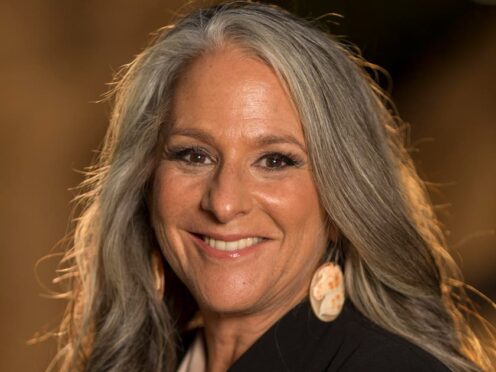Friends co-creator Marta Kauffman has said it was a “mistake” not to use appropriate pronouns in the hit sitcom and now ensures she builds “safe” and “tolerant” workplaces.
The American sitcom Friends ran from 1994 to 2004, and followed the eventful lives of six friends living in Manhattan, New York.
During an interview with The Conversation on the BBC World Service, Kauffman, 65, who co-created the show with David Crane, has spoken about her regret at the representation of Chandler Bing’s transgender parent.

Kauffman said: “We kept referring to her [Chandler’s transgender parent] as Chandler’s father, even though Chandler’s father was trans.
“Pronouns were not yet something that I understood. So we didn’t refer to that character as she. That was a mistake.”
Chandler, who was played by Matthew Perry, was one of the show’s main characters along with Rachel Green, Monica Geller, Ross Geller, Phoebe Buffay and Joey Tribbiani.
Kauffman, who is also the creator of Netflix hit Grace And Frankie, said she now strives to create inclusive and diverse workplaces.
“I like very much to create an environment where we have a happy set and a happy crew,” she said.
“It’s very important to me that where we are is a safe place, a tolerant place, where there’s no yelling.
“I fired a guy on the spot for making a joke about a trans cameraperson. That just can’t happen.”
On how she deals with criticism of the show, Kauffman told presenter Kim Chakanetsa: “Friends has been criticised in a number of ways. The biggest one being that we did not have enough representation of black people.
“And over the course of the last few years I’ve gotten to the point where I can say unfortunately yes, I am guilty of that. And I’ll never make that mistake again.
“I was clearly part of systemic racism in our business. I was unaware of that, which makes me feel stupid. That was a very valid, extremely difficult criticism which still… I get emotional about.”
She added: “If I knew then what I know now, there are certain things I would have changed. But I didn’t know them and I have since learned.”
Kauffman also touched on using sitcom Grace And Frankie to work on breaking taboos about ageing, saying: “We wanted to talk about sex at a certain age, and ageing and feeling marginalised.
“But really the show is about… you can start your life over at any time, you just need a friend to do it with.”
Grace And Frankie stars actors and Kauffman’s close friends Jane Fonda and Lily Tomlin.
The show follows two women who have always been rivals until they have to join forces after they learn that their husbands have fallen in love with each other and want to get married.
The full interview with Marta Kauffman on The Conversation will air on BBC World Service on July 11 at 11.30am.
